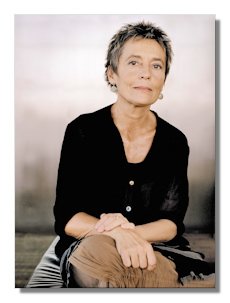
The Internet's Premier Classical Music Source
Related Links
- Latest Reviews
- More Reviews
-
By Composer
-
Collections
DVD & Blu-ray
Books
Concert Reviews
Articles/Interviews
Software
Audio
Search Amazon
Recommended Links
Site News
 Concert Review
Concert Review
Ludwig van Beethoven

Heavenly Beethoven
- Overture "Leonore" #2
- Piano Concerto #2 in B Flat Major, Op. 19
- Symphony #4 in B Flat Major, Op. 60
Maria João Pires, piano
Orchestra Mozart/Bernard Haitink
Brussels, Center for Fine Arts, 29 September 2013
Cancellations can go in every direction. An opportunity to see the legendary couple Claudio Abbado-Martha Argerich once more at work was abruptly shattered when the 80-year old Italian maestro had to annul his European tour with his Orchestra Mozart on doctor's orders. It had been almost fifteen years since Abbado was last in Brussels, expectations were understandably high, but the "big comeback" was clearly not to be this time. And with Abbado out, so was Argerich, and the scheduled Haydn-Mozart program.
The grand old Dutch maestro Bernard Haitink – himself 84 – was found willing to step in for Abbado, joined by frequent partner the Portuguese pianist Maria João Pires. Arguably, with Pires as soloist one couldn't have been further away from Argerich, but as soon as the Haitink-Pires tandem began to reveal its magic, all worries of feeling short-changed were dispelled.
The magic wasn't obvious from the start though. Haitink opened an all-Beethoven program with a rather unsteady account of Leonore Overture #2, which stubbornly refused to take flight. The Orchestra Mozart, Abbado's prestigious handpicked formation based in Bologna and featuring this evening veterans like Wolfram Christ (principal viola) and Alois Posch (principal double bass), sounded well balanced and transparent, but some slips in the ensemble further marred the fun.
As soon as Maria João Pires sat down behind the keyboard for Beethoven's Second Piano Concerto, however, we were in for a treat. Any fears that this Mozart specialist would push Beethoven back to the past were soon put to rest. With the orchestra reduced to a smaller force, Haitink offered a straightforward but pliant base in which Pires embedded a thoroughly fascinating reading, subtly transcending the Mozart-Haydn model with her dynamics and articulation. That she managed to make it all sound perfectly natural without a hint of affectation or attention seeking, made it all the more impressive. This was music-making of the highest order. The lyrical quality of the Adagio was beautifully exposed by both soloist and conductor, while the closing Rondo sounded positively playful and sunny, with Pires' imaginative phrasing again a constant delight. A magical performance, indeed, which instantly placed this least-beloved of all Beethoven piano concertos a tad higher on the appreciation scale.
After the break Bernard Haitink returned with a magnificent account of Beethoven's Fourth Symphony. As with Leonore, the octogenarian maestro conducted the symphony without a score, yet this time everything fell quite naturally into place. Optimistic, vivacious and exciting, this was young-man's Beethoven, denying Haitink's venerable age, yet not his profound understanding of the music. Haitink's Beethoven is also (not unlike Abbado's) influenced by period-performance practice when it comes to tempi, textural clarity and dynamics. Unlike some, however, he sticks entirely to modern instruments and with Haitink's innate sense of musicality, avoiding all mannerisms, aggressiveness or unnecessary digressions, the result was totally satisfying. The Orchestra Mozart responded with total commitment and fine playing throughout. Especially memorable was the fleeting Adagio where the pulsating rhythms were given extra character by the clearly differentiated strings sections, in an ideal balance with the woodwinds and brass.
Haitink offered a generous encore with Beethoven's Egmont Overture, sounding after the sunlit Fourth particularly dark and intense, boasting incisive chords and capped with a gloriously triumphant finale. He was rewarded with a massive standing ovation from the packed hall.
Well deserved.
Copyright © 2013, Marc Haegeman












